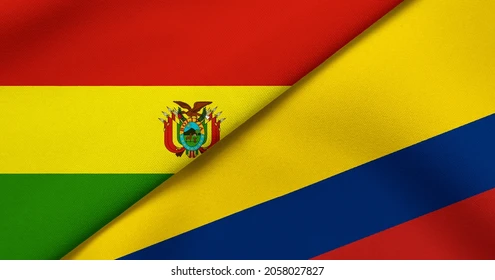Starting this weekend, and for the first time since 1991, Bolivia’s products no longer enjoy preferential access when entering the United States, unlike those from Colombia, Ecuador, and Peru. All four countries had received tariff-free access for certain products under the Andean Trade Promotion and Drug Eradication Act (ATPDEA), a program designed during the George H.W. Bush administration to provide trade benefits in order to provide alternatives to cocaine production and in return for cooperation with counternarcotics efforts. But following a diplomatic spat between the U.S. and Bolivian governments in September, the United States designated Bolivia as having “failed demonstrably” in its counternarcotics efforts, and despite Congress’ vote to maintain all countries on the ATPDEA beneficiary list, the Bush administration decided to withdraw Bolivia’s benefits. As the Just the Facts project points out, though, Bolivia’s counternarcotics results have not differed much from those of Peru and Colombia. However, when U.S. Ambassador Goldberg was kicked out of Bolivia in September he said that Bolivia’s decision to expel him would have “serious consequences.” The withdrawal of ATPDEA benefits has as much, if not more, to do with the worsening relation between the two countries as it does with Bolivia’s counternarcotics efforts.
Bolivian President Morales and Colombian President Uribe do not have much in common, but now they can commiserate about the politicization of U.S. trade policy. The Uribe administration signed a free trade agreement with the United States in November of 2006, but it has stalled in Congress due to Democratic opposition concerned over human rights violations in Colombia. Withholding free trade from Colombia, the Democrats argue, will pressure the Uribe administration to better protect human rights.
Even though Democrats in Congress are behind blocking the trade agreement with Colombia and the Republican administration is responsible for withdrawing benefits from Bolivia, and even though the decisions have been highly divisive and severely criticized by members of the opposing party, the Colombian and Bolivan situations are in fact quite similar. In both cases the Latin American countries count on the U.S. for their economic development strategies and in both cases the United States is attempting to coerce these countries into acting in a certain way that matches U.S. priorities by withholding trade. In the case of Colombia, Republicans have argued that blocking trade will only worsen the stiuation there by limiting the populations’ economic opportunities; in the case of Bolivia, Democrats have used the same argument.
The latest turn of events expose conflicting arguments that both parties have been using. More worrisome, though, this all demonstrates that policymakers on both sides of the aisle believe that the United States can best meet its interests by forcing countries into submission. The newspapers that have traditionally been associated with each side’s points of view have also fallen into the same traps: advocating for ‘my-way-or-the-highway tactics’ and employing a double-standard with Colombia and Bolivia. While the Washington Post has fiercely advocated for passing the free trade agreement with Colombia, this publication was one of the first to suggest using the “enormous leverage” that the United States has on 30,000 jobs in Bolivia that depend on ATPDEA. The New York Times editorial, on the other hand, recently argued that “generally, it’s a bad idea to tie foreign aid programs that are in the American interest to the behavior of foreign governments” and called withdrawing Bolivia’s trade preferences “self defeating.” But it supports delaying the Colombia free trade agreement.
Both policymakers and editorial boards should realize that there are smarter ways to engage the region. Both Bolivia and Colombia suffer from cocaine production and trafficking. Offering alternative economic opportunities for their citizens is in the U.S., Bolivian, and Colombian interests. In the case of Colombia specifically, greater investment brought in by a free trade agreement with the United States would also create opportunities and reduce incentives to join the ranks of the country’s guerrilla and paramilitary groups, and therefore improve respect for human rights in that country. Trade should not be seen as a reward for good behavior, but rather as a powerful tool that can help create opportunities for the region’s marginalized populations. A wealthier Latin America where citizens do not feel a need to resort to producing and trafficking illegal drugs is in everyone’s interest.
More than anything, though, policymakers and editorial boards need to take a look at history and recognize what should be obvious: threats and punishments don’t gain you friends. While the current trade policies toward Bolivia and Colombia may seem to make sense in the short-run, they are detrimental to U.S. interests in the long-term. They create resentment, which can easily backfire against U.S. interests. And even if Bolivia and Colombia were to comply with the United States’ demands, their actions would be the result of coercion, not of persuasion, and their commitment would therefore not be as genuine or sustainable. Despite what some may say, the United States is an influential economic and political force in the region, but it needs to learn to use this influence in a way that better meets its own interests and those of the region.

Reply